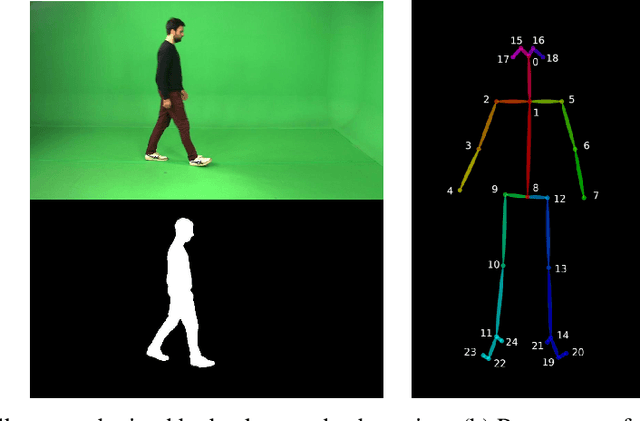Luis Ducla Soares
Remote Pathological Gait Classification System
May 04, 2021



Abstract:Several pathologies can alter the way people walk, i.e. their gait. Gait analysis can therefore be used to detect impairments and help diagnose illnesses and assess patient recovery. Using vision-based systems, diagnoses could be done at home or in a clinic, with the needed computation being done remotely. State-of-the-art vision-based gait analysis systems use deep learning, requiring large datasets for training. However, to our best knowledge, the biggest publicly available pathological gait dataset contains only 10 subjects, simulating 4 gait pathologies. This paper presents a new dataset called GAIT-IT, captured from 21 subjects simulating 4 gait pathologies, with 2 severity levels, besides normal gait, being considerably larger than publicly available gait pathology datasets, allowing to train a deep learning model for gait pathology classification. Moreover, it was recorded in a professional studio, making it possible to obtain nearly perfect silhouettes, free of segmentation errors. Recognizing the importance of remote healthcare, this paper proposes a prototype of a web application allowing to upload a walking person's video, possibly acquired using a smartphone camera, and execute a web service that classifies the person's gait as normal or across different pathologies. The web application has a user friendly interface and could be used by healthcare professionals or other end users. An automatic gait analysis system is also developed and integrated with the web application for pathology classification. Compared to state-of-the-art solutions, it achieves a drastic reduction in the number of model parameters, which means significantly lower memory requirements, as well as lower training and execution times. Classification accuracy is on par with the state-of-the-art.
 Add to Chrome
Add to Chrome Add to Firefox
Add to Firefox Add to Edge
Add to Edge